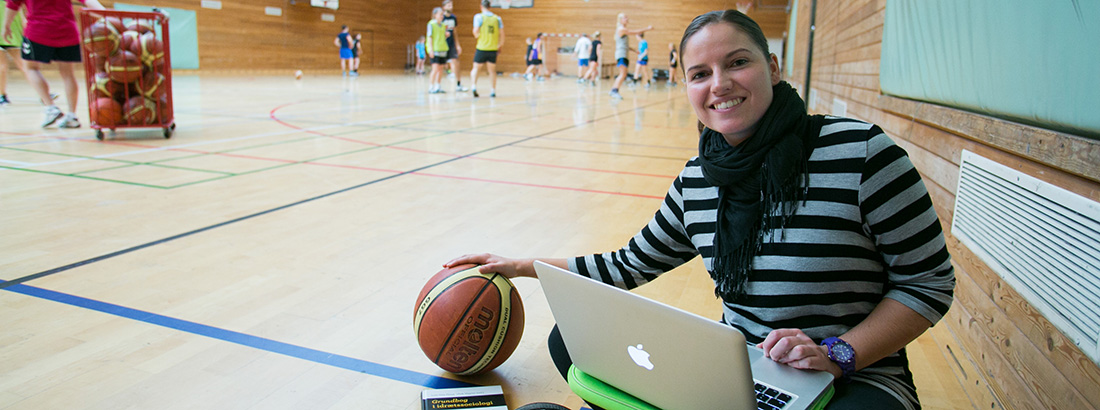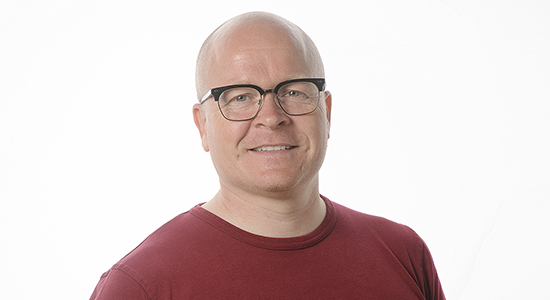Idræt, individ & samfund

Sektionens forskning fokuserer på at fremme idræt og bevægelse for både børn, unge, voksne og ældre.
Vi undersøger derfor idrættens og bevægelsens mangfoldighed. Det indebærer betydningen af at skabe meningsgivende oplevelser, fremme fællesskab og sundhed og udvikle organisatoriske muligheder, der også kan rumme mennesker i sårbare positioner.
Vores primære sigte er at være en toneangivende bidragsyder nationalt og internationalt fortrinsvist inden for pædagogisk, psykologisk og sociologisk idrætsforskning (se også sektionens 'Research Publication Quality Criteria')
Sektionens arbejde er forankret i forskningsprojekter, hvor sektionens medlemmer spiller centrale roller.
Sektionens forskning knytter sig tæt til en professionel praksis. Vi samarbejder derfor med en række organisationer fra idrættens verden og offentlig forvaltning såvel som med aktører inden for andre forsknings-, undervisnings- og uddannelsesmiljøer.
Vores mål er, at forskningen kan gøre en forskel for praksis.
Sektionen bidrager derfor med undervisning til Bachelor i Idræt og fysisk aktivitet og varetager al vejledning og undervisning på den humanistiske og samfundsvidenskabelige kandidatlinje i idræt.
Herudover bidrager vi fra tid til anden på Ph.d. kurser og efter- og videreuddannelser.
Sektionsleder Ulrik Wagner
Postadresse
Institut for Idræt og Ernæring
Idræt, individ & samfund
Nørre Allé 51
2200 København N
Besøgsadresse
Idræt, individ & samfund
AB Bygningen
Nørre Allé 55
2200 København N
Research Publication Quality Criteria
The section aims to publish its research according to highest possible national and international standards. The section’s strength is in its multi- and inter-disciplinarity in the social science and the humanities concerning movement, exercise and sport. Its publishing strategy therefore reflects this strength. Our publishing channels include international and national peer reviewed journals, as well as books or book chapters published by reputable academic publishing houses.
Whilst we recognise the importance of widely utilised publishing metrics in relation to quality standards in scientific research, we utilize these metrics with caution. Therefore, these guidelines define the section´s ideals for quality assessment of the ways in which we disseminate our academic research:
- We consider employment of a thorough and rigorous peer review process a precondition for high quality research, within which our research is critically assessed by other scholars and peers. We consider this widely accepted measure of quality to be a welcome practice that helps us improve our work.
- We consider the employment of rigorous, anonymous peer review to be a precondition of quality, and therefore we avoid publishing in ‘grey-zone’ or predatory journals. We consider criteria for rigour to include the employment of thorough peer review processes (including the possibility of rejection of manuscripts), and which offer transparent and open processes for publication.
- We seek to publish with, speak to and convince pluralistic and diverse academic societies, rather than constrain ourselves to ‘closed communities’ that tend to isolate themselves within academia. Our ambition remains to engage with scholars who may not be familiar with our methodologies, subject matter or approaches, or who may not share our scientific philosophies, in order that our contributions can strengthen and develop broader research fields.
- We seek to balance and support publishing in Danish as well as English (and other languages), provided that quality assessment standards (e.g. peer review) are maintained at a high level during the publishing process.
- Alongside and in supplement to scientific publication in the highest possible standard of a given sub-field, we acknowledge that criteria for impact and quality can differ, particularly where research either seeks to engage with a specific scholarly or broader community, or an audience of practitioners. In such cases, we seek to gain evidence of the impact of our work, whilst continuing to emphasize scientific rigour in how we assess research quality. We understand scientific impact in relation to;
- The significance of our scientific work, or the degree to which impact enables, enriches, influences, informs or changes the performance, policies, practices, education programmes, products, services, understanding, awareness or well-being of the beneficiaries, and
- The reach of our scientific work, or the extent and/or diversity of the beneficiaries of the impact, as relevant to the nature of the impact, inclusive of societal impact.
Medlemmer af sektionen
| Navn | Titel | Telefon | |
|---|---|---|---|
| Søg i Navn | Søg i Titel | Søg i Telefon | |
| Adam B. Evans | Lektor | +4535331336 | |
| Andorra Lynn Jensen | Ekstern ph.d.-studerende | +4535322429 | |
| Anna Stage Hansen | Indskrevet ph.d.-studerende | ||
| Annette M Dornonville de la Cour | Ekstern lektor | +4520658410 | |
| Charlotte Svendler Nielsen | Lektor | +4535320830 | |
| Dorte William Wedell-Wedellsborg | Akademisk medarbejder FU | +4535336593 | |
| Glen Nielsen | Lektor | +4535320869 | |
| Helle Winther | Lektor - forfremmelsesprogrammet | +4535320806 | |
| Henriette Folkmann Hansen | Ekstern lektor | ||
| Laila Ottesen | Lektor | +4535321741 | |
| Maise Johansen | Undervisningsassistent | ||
| Marie Birch Overbye | Ekstern lektor | ||
| Marie Caroline Vermund | Erhvervs-ph.d. | +4535332121 | |
| Mette Lindholm Kurtzhals | Videnskabelig assistent | +4535327681 | |
| Mikkel Sørensen | Studielektor | +4535320802 | |
| Paulina Sander Melby | Postdoc | +4527266039 | |
| Reinhard Stelter | Professor emeritus | +4535320866 | |
| Sidse Marie Sidenius Bestle | Postdoc | +4535332465 | |
| Signe Engdal | Ph.d.-stipendiat | +4535336232 | |
| Steen Ingemann Jørgensen | Ph.d.-studerende | ||
| Troels Thorsteinsson | Ekstern lektor | +4521608935 | |
| Ulrik Wagner | Lektor, sektionsleder | +4535321511 |


